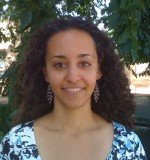Podcast: Download (8.9MB)

Christine Caldwell, Ph.D., LPC, ADTR – Founder and former director of the Somatic Counseling Psychology Department at Naropa University in Boulder, Colorado, where she currently teaches. Her work began twenty years ago with studies in anthropology, dance therapy, bodywork and Gestalt therapy, and has developed into innovations in the field of body-centered psychotherapy. She calls her work the Moving Cycle. This system goes beyond the limitations of therapy and emphasizes lifelong personal and social evolution through trusting and following body states. She has authored two books: Getting Our Bodies Back, and Getting In Touch. She offers trainings in somatic psychotherapy (the Moving Cycle), with specializations in addictions, play, movement sequencing, therapist training, scientific inquiry, and birth and death.

Ryan Kennedy, LPC, LMFT, RN, CACIII, BC-DMT, CLMA is the Chair of the Somatic Counseling Psychology Department at Naropa University and also serves as the Director of the Body Psychotherapy Program. In addition, he serves on the faculties of Prescott College, University of Colorado Denver, and Front Range Community College. His clinical background includes extensive work with chronic and persistent mental illness, trauma and dissociative disorders, addiction and recovery, domestic/family violence, and living with life-threatening illnesses. He use an integrative approach that draws from his expertise in trauma recovery, addiction treatment, couple and family therapy, human sexuality, domestic violence prevention/intervention, Gestalt psychotherapy, Jungian analysis, contemplative practice, existential psychotherapy, expressive arts therapies, and movement-oriented, body-based psychotherapy.

Tara Topper has a master’s degree in Somatic Counseling Psychology, with a concentration in Dance/Movement Therapy, from Naropa University and a BA in Psychology and Sociology from UCLA. She is a Registered Dance/Movement Therapist (R-DMT) and has a systemic, somatic (body-centered), and person-centered approach to counseling people. This means that she believes understanding your relationship to yourself and others, how you move or inhabit your body, and how you discover your innate wisdom will be essential to building the therapeutic relationship. Her specialties include trauma processing, individual and couples therapy, and experiential play therapy.
November 2010. See: Printable PDF transcript